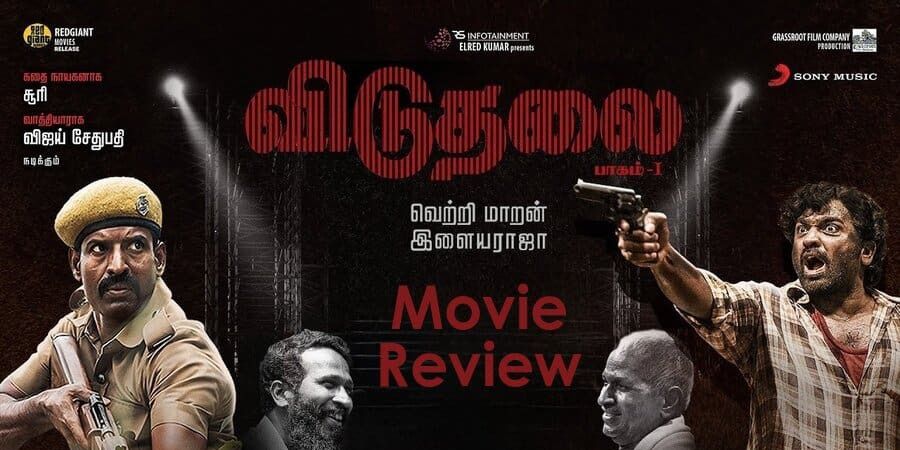

Vetrimaaran's Viduthalai Part 1, his most intense film since Visaranai, is more than just another video on police brutality; it also highlights the inefficiency of a system that still preys on the vulnerable. The film, which is undoubtedly not for the weak of heart, is a complex and in-depth investigation of the abuse of power and it delves deeply into the mind of a guy, an upright police officer who is conflicted between doing his duty and looking for the truth.
A worthwhile and watchable film is Viduthalai. At this moment, Vetrimaaran is unable to create anything that isn't intriguing in some way. But given the grim subject matter, I couldn't help but keep comparing it to Visaranai, a genuinely outstanding film. Why is Viduthalai incapable of attaining that degree of greatness? The movie feels overly edited, for one. The scenes are lifeless. For instance, there is a scene in which a teenage girl from the Schedule Caste is murdered. Its effects aren't as noticeable as the scene description would have you believe. Other than the senior leadership and Kumaresan, the police officers are a largely anonymous group. Even when we achieve a stunning technical feat, such as the prolonged, single-shot coverage of a train catastrophe,, we marvel more at the shot than we feel about the victims of the tragedy. (The film's finest bit of cinematography is a drone shot that begins with two men in a forest. The camera keeps rising until the two men become insignificant, like insects, when compared to the vastness of Nature – the very Nature that someone like Perumal is trying to save from mankind's greed.)
The sentimentalization and highlighting of each emotion in Ilayaraja's composition further deflates the proceedings. For instance, the music and ambient sounds (such as conversation and "atmosphere") compete for attention during the scene of that train accident. These sentimentalizations, these melodies, can be used to improve a Vada Chennai or an Aadukalam. The Visaranai/Viduthalai zone, however, is distinct, therefore I find it odd when our filmmakers claim they submit their works to film festivals without much of a score yet add one for local release "for the sake of the audience." (Kaka Muttai and numerous other "new-age" movies have experienced the same thing.) Should we not have faith in the audiences (our audiences) to embrace these films without being spoon-fed on an emotional level if we are going to create pictures that alter how they view cinema? Regarding the AR Rahman tracks, I mentioned in my PS-1 review that they "could have been completely axed to make way for more narrative." It's an argument in rhetoric. I am aware of how important music is to the movie business, but wouldn't it be better to spend more time developing the characters in a long, complicated story? Of course, it's a question of taste, but I also believe it's something to consider.
However, this "mainstreaming" might be what allows Viduthalai to connect with more people than Visaranai did. I wished we had spent a lot more time inside Kumaresan's thoughts because this is largely his coming-of-age story. But then, all of Part 1 is a build-up to Part 2, and in the version I watched a few days before release, the epilogue is a firecracker in every moment and every sentence. One more intriguing tidbit regarding Viduthalai.
